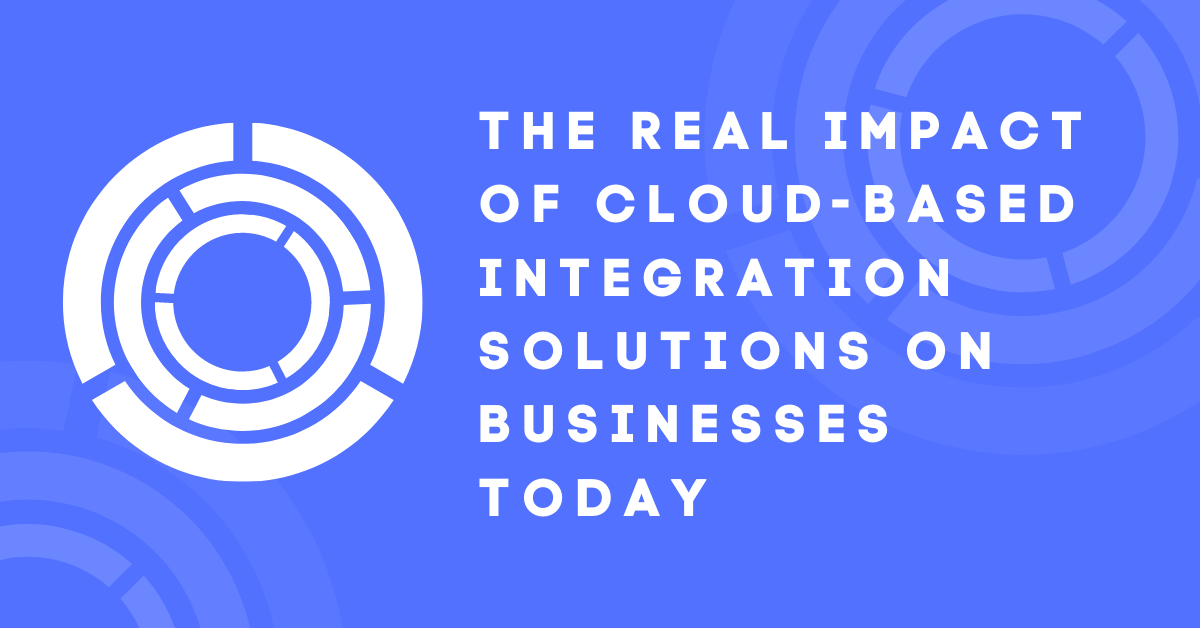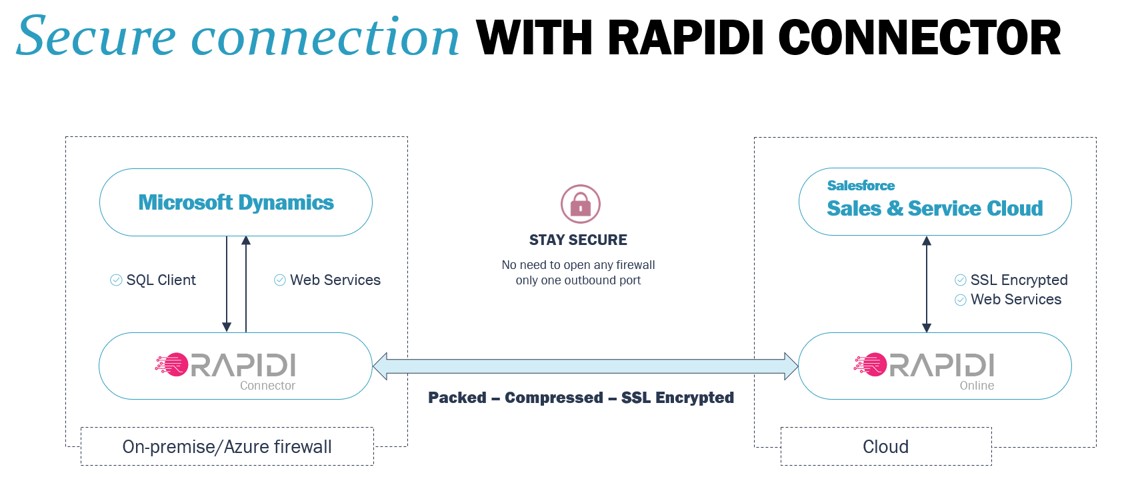This article will show you how cloud-based data integration can transform your business.
Fully integrated data is a mandatory component of any sustainable business. If you click on this article, there’s a chance that your company has grown enough to find itself staring down the barrel of an impending data integration project.
While data technology can be a daunting subject, and the prospect of organizing an integration project even more so, companies such as Rapidi help streamline the procedure so you and your teams can focus on business as usual.
So, what is data integration? Data integration is the process by which distinct programs “talk” to each other, eliminating unwanted data siloing and pooling their data into a unified point of truth from which all requisite members of an organization can operate.
READ ALSO: Enterprise Security Guide
TOP DEALS
Table of Contents
So, How Does Data Integration Work?
There are a few ways to approach a data integration project, but at the heart of every integration project are a few mandatory components: the controller server, users requesting the data on the controller server, and the related network of different data sources.
When the controller server extracts the requested data from the correct sources, your integration solution collects it into a single data set. This singular point of truth becomes a handy reference point from which all your team members can operate.
Sales teams in the field will no longer mistakenly sell an out-of-stock item to a customer due to data siloing, nor will they have to put customer interactions on hold to reach out to the Finance department about the details of a customer’s profile or purchase history. These issues may seem minor, and one or two instances won’t sink your organization.
However, if these situations are allowed to compound, they can negatively impact customers’ beliefs about your organization’s reliability, integrity, and service.
Once you’ve successfully implemented your data integration solution, your team members will feel the effects immediately, saving countless hours otherwise spent in redundant back-and-forths over email or phone and double-checking information to ensure it was the most relevant and up-to-date.
Plus, it vastly reduces human error since there is no longer a need to update the same profile with the same information across different systems.
With Rapidi’s data integration solutions at your fingertips, data integration doesn’t have to be a headache: their team of experts will handle implementation and training and are on call for support and maintenance even after the project is completed.
Why are some businesses afraid to integrate? Often, the source of their reluctance is money concerns. This is understandable, especially for small businesses with fewer resources.
However, by expending the resources up front, your business will quickly see a return on its investment. Heightened employee efficiency, streamlined operations, and fewer data entry errors are all excellent news for your bottom line.
READ ALSO: Unveiling the Power of XDR: A Comprehensive Guide to Extended Detection and Response
The Real Impact of Cloud-Based Integration Solutions on Businesses Today
| Impact Area | Benefit | Description |
|---|---|---|
| Efficiency & Productivity | Streamlined Workflows | Break down data silos and automate manual processes, allowing employees to focus on higher-value tasks. |
| Scalability & Agility | On-Demand Resources | Easily scale resources up or down to meet changing business needs without significant upfront investments. |
| Collaboration | Real-Time Data Sharing | Foster seamless collaboration across departments and locations with access to the latest data anytime, anywhere. |
| Customer Service | Improved Customer Experience | Gain a unified view of customer data to personalize interactions and provide faster, more efficient service. |
| Data-Driven Decisions | Enhanced Analytics | Leverage integrated data from various sources to gain deeper insights and make informed business decisions. |
| Cost Savings | Reduced IT Infrastructure Expenses | Eliminate the need for costly on-premise hardware and software, leading to significant cost reductions. |
| Security | Enhanced Data Protection | Benefit from the robust security measures offered by cloud service providers, ensuring data remains safe and secure. |
| Disaster Recovery | Business Continuity | Cloud-based solutions offer built-in disaster recovery features, minimizing downtime and ensuring business continuity in case of disruptions. |
Real-Life Data Integration Success Stories
Based in the Netherlands, XSens Technology pioneered 3D motion tracking technology. Several years ago, they selected Rapids to help them with their Microsoft Dynamics NAV-Salesforce CRM integration project based on their years of experience and thorough knowledge of their ERP and CRM. Since then, Jeroen Weijts, the COO of Xsens, has been a staunch supporter and advocate of Rapidi.
During the process, it was discovered that Xsens required a solution more customized than Rapidi’s out-of-the-box solutions. This wasn’t a problem; Rapidi’s team of experts quickly crafted a custom data integration solution that suited Xsen’s needs to the letter.
Weijts notes that the resulting client interface is simple and intuitive, and Rapidi’s team was able to deploy the solution and fully train Xsen’s staff members in a matter of days.
Overall, cloud-based integration solutions are not just tools, but strategic enablers for businesses. They empower them to operate more efficiently, make data-driven decisions, and deliver exceptional customer experiences. As cloud adoption continues to grow, the impact of integration solutions will only become more profound.
What Service Should I Trust To Lead My Data Integration Project?
For nearly thirty years, Rapidi has been a titan in the realm of data replication.
They put decades of expertise into their cutting-edge data integration solution, RapidiOnline, which is developed according to best practices to ensure your company’s data integration project is seamless and hassle-free from beginning to end (and beyond).
Within days, your CRM and ERP systems will be flawlessly integrated, and your staff will be fully trained on RapidiOnline’s intuitive interface.
READ ALSO: Understanding The Windows 10 Ransomware Protection
RapidiOnline’s subscription-based model means that your company always has access to the most up-to-date editions; your Rapidi solution will never phase out, and subscribers automatically have access to any improvements made to the underlying software.
Rapidi has worked to ensure its technology meets and exceeds even the highest industry standards for years. RapidiOnline can function as the go-between for nearly every popular CRM and ERP and is Microsoft-certified, working perfectly with even legacy editions of Microsoft ERP and CRM products.
Conclusion
Cloud-based integration solutions have revolutionized the way businesses operate. By eliminating data silos, streamlining workflows, and fostering real-time collaboration, these solutions offer a multitude of benefits that can significantly enhance efficiency, productivity, and overall business performance.
From increased agility and scalability to improved customer service and data-driven decision making, cloud-based integration solutions are no longer optional for businesses striving to stay competitive in today’s dynamic market landscape.
As technology continues to evolve, the capabilities of these solutions will undoubtedly further expand, offering businesses even more powerful tools to achieve success.
Contact Rapidi today and learn more about how a successful data integration project can put your business ahead of the competition.
INTERESTING POSTS
- How Will The Right CRM System Improve Your Business Today?
- 5 Top Apple Mail Alternatives For iPhone And Mac
- Implementing SaaS Security – A Checklist
- Integrate Your Calls To CRM System
- FBI: ProLock ransomware can access networks via Qakbot infections
- 20 Best Cybersecurity Business Ideas For Entrepreneurs
- Modern Security Solutions For Your Modern Security Issues
About the Author:
Daniel Segun is the Founder and CEO of SecureBlitz Cybersecurity Media, with a background in Computer Science and Digital Marketing. When not writing, he's probably busy designing graphics or developing websites.















